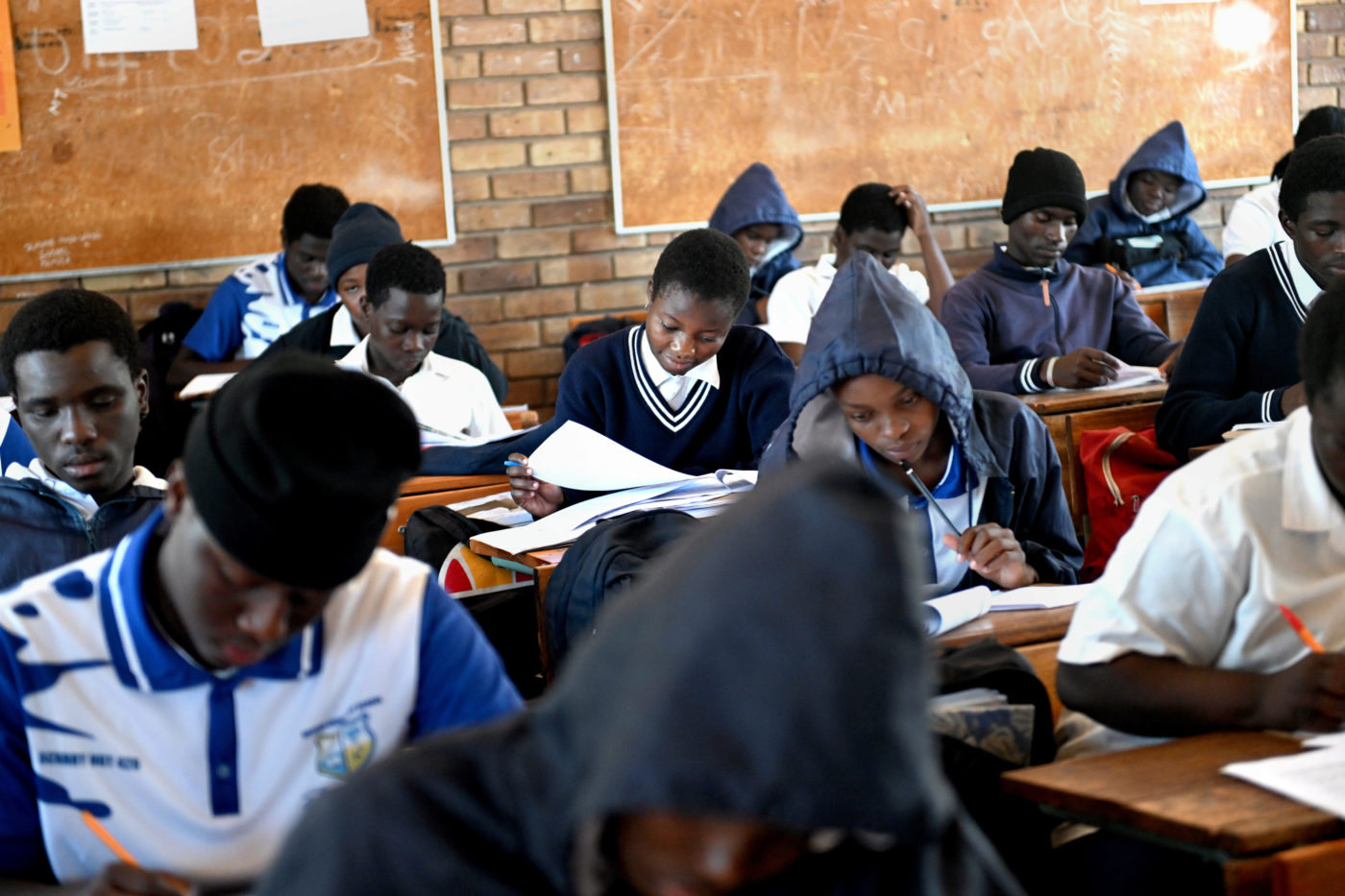Last year, Hanyani Secondary School located outside Thohoyandou in Limpopo, was among the least performing schools in the country, with a 57% pass rate. This left the school management and the community wondering as to what more they could do, because they believed they had done all they could to improve the situation. This year, however, the school achieved an impressive 92.1% – an increase of 35,1%.

This remarkable turnaround is credited to the collaborative efforts of the School Advisory Board, the principal, staff at Hanyani Secondary School, and the University of Johannesburg (UJ)’s transformative UJ for Societal Impact project. This initiative, which dates back to 2014, addresses critical infrastructure needs in the remote villages of Gwakwani, Matatani, and Mbodi, situated between Thohoyandou and Musina. The project focuses on delivering sustainable solutions in energy, water, connectivity, and education, directly contributing to the UN Sustainable Development Goals (SDGs).
As part of its commitment to SDG 4: Quality Education, UJ collaborated with the South African Jewish Board to launch the Tshumisano Learning Centre in 2023. This state-of-the-art learning facility at Hanyani Secondary School isequipped with computers, books and updated learning materials to engage learners and teachers. The facility boasts a satellite for uninterrupted internet access and solar powered lights. Spearheaded by UJ’s Faculty of Engineering and the Built Environment (FEBE), this initiative has revolutionized learning and teaching in the region.

“This year, we achieved 92.1% compared to last year’s 57% pass rate. We are grateful to UJ for the interventions and assistance they have given gave to the school, the impact is evident in results,” said an ecstatic Principal, Mr Thifhelimbilu Ndou. More impressive is that the school achieved a 100% pass rate in Science and 84,6% in Mathematics, a feat that seemed a distant dream just a few years ago.
“We have really performed very well, the last time we received a pass rate this high was in 2018. As the head of the school, I am excited like never before,” said Mr Ndou, adding that he had a meeting with the teachers to congratulate them as well for the effort they put in to ensuring the learners were ready for the exams.
Hanyani Secondary School has an enrolment of just under 500 learners, and it serves a cluster of villages stretching over a radius of about 15 km. Most of the children who attend the school are from disadvantaged and child-headed households. Principal Ndou had previously indicated that the dropout rate at the school was high due to child-headed households. Many of the youth in the villages were not motivated about the future because they did not know the options available to them after high school.
Today, the learning and media centre has instilled hope. Learners can now study into the night using solar-powered lights, research past exam papers online, complete homework, and apply to higher education institutions. Teachers, too, have benefited, using the computers to enhance their teaching skills and further their studies.
UJ adopted a whole-of-institution approach for the UJ for Societal Impact project in 2024. In addition to solar lights provided by FEBE, the Faculty of Science supplied equipment for science practicals, the College of Business and Economics and the Faculty of Education trained staff to improve learner outcomes, the Faculty of Health Sciences offered First Aid training, the Faculty of Humanities hosted a clothing drive, and the Faculty of Law secured a bursary for a deserving student. Other faculties also provided their support.

“We have come so far from where we were before, and it is thanks to you. We have done so very well…this is good, this is precious, this is wonderful. “We want to truly thank UJ for helping us. The improvement in the results has motivated the learners and the teachers. We are here because of you and for that we are grateful.”
Commenting on the results, the Executive Dean of FEBE, Professor Mashao said: “It has not been easy launching a project at a place that is so remote from the university, but we are so pleased to see our work making a positive impact. We hope the school continues to be a beacon of hope.”
Also welcoming the news was Prof Khan, the Vice-Chancellor: Academic: “This achievement is a testament to the transformative power of collaboration and the unlimited potential of education. At the University of Johannesburg, we are committed to ensuring that no learner, regardless of their circumstances, is left behind. Witnessing the strides made by Hanyani Secondary School fills us with pride and reminds us of the profound impact education can have on individuals, families, and entire communities. We celebrate this success alongside the learners, teachers, and the community.”
Said Prof Letlhokwa George Mpedi, the Vice-Chancellor and Principal of UJ: “The UJ for Societal Impact project marks a critical step in the University’s drive for societal transformation through education, innovation, and its leadership in achieving the UN Sustainable Development Goals (SDGs). It is pleasing to know that through our interventions, schools in remote and often neglected areas are able to improve their performance. Through projects like this, we are able to make a real and lasting difference, especially in marginalised communities.”
WATCH | UJ For Societal Impact: Empowering Communities Through Research and Innovation



